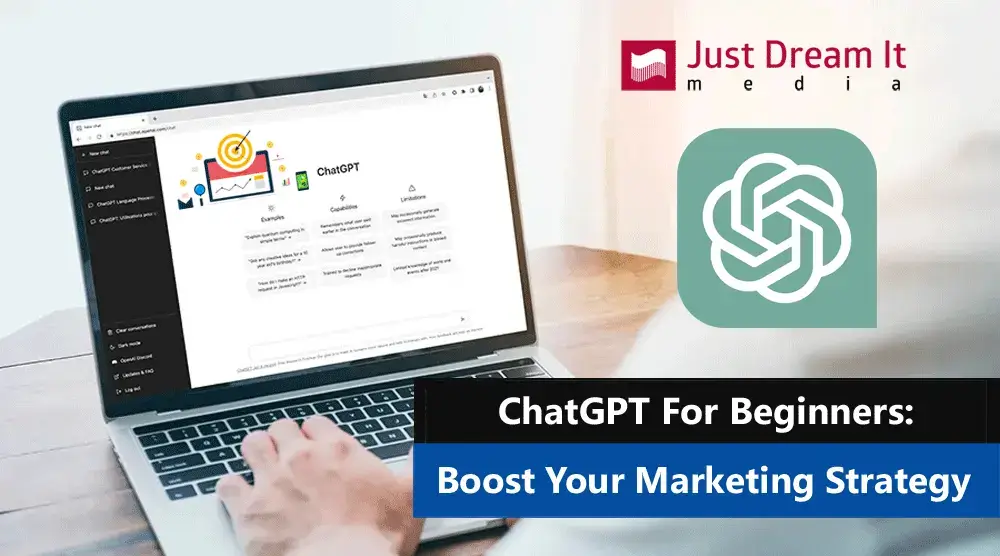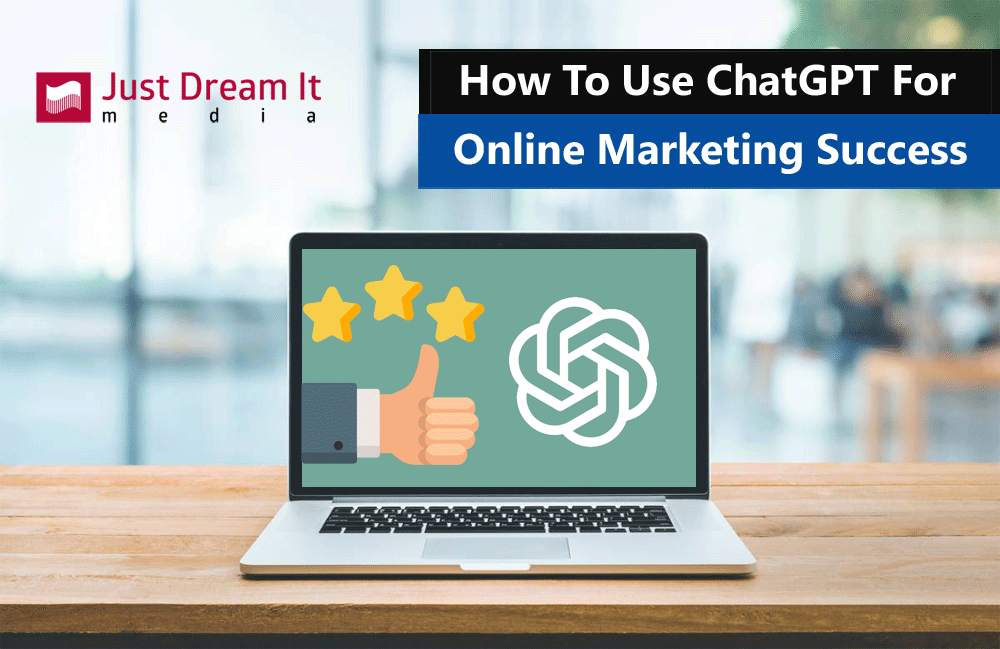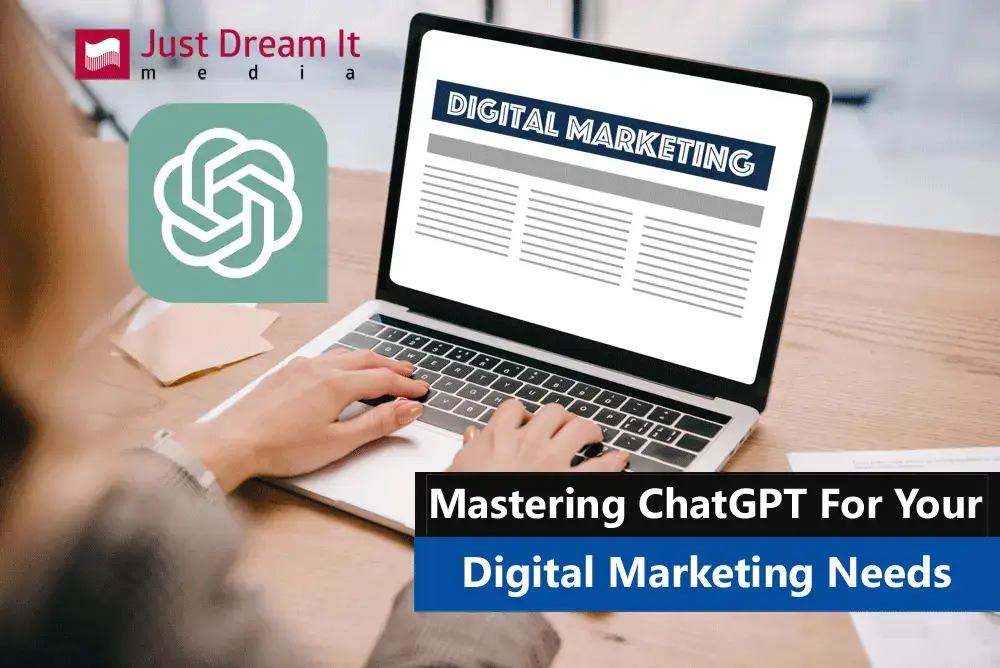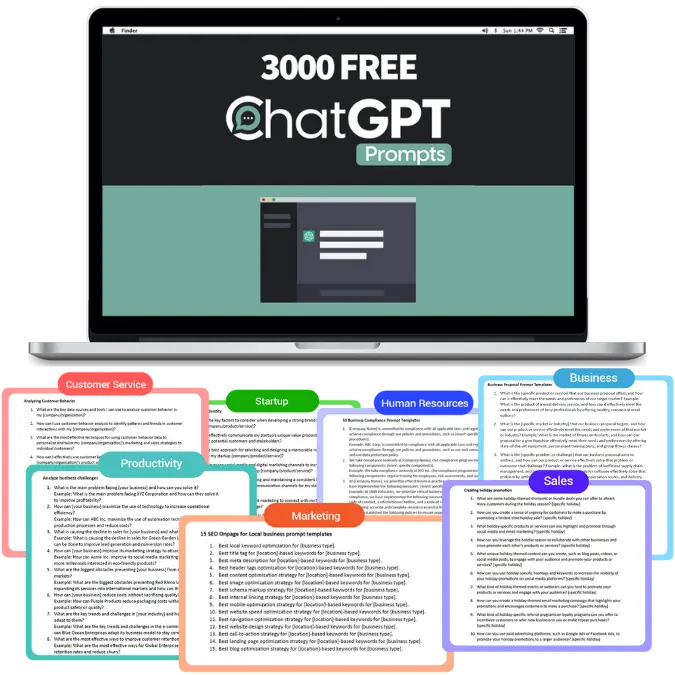Mastering the Marketing Game: A Beginner’s Guide to Leverage ChatGPT
Introduction
In today’s fast-paced digital world, artificial intelligence (AI) has become an essential component of effective marketing strategies. One such AI tool that has gained significant attention is ChatGPT. This comprehensive guide aims to help beginners understand how ChatGPT can be integrated into their marketing strategy to create engaging content, improve customer engagement, and optimize SEO efforts.
The Emergence of AI in Marketing
Artificial intelligence has revolutionized the marketing landscape by automating repetitive tasks, providing valuable insights, and enabling personalized interactions. With the help of AI, marketers can focus on strategic decision-making and building creative campaigns.
What is ChatGPT?
ChatGPT, a language model developed by OpenAI, leverages advanced AI technology to generate human-like text based on the input provided. It can be used to create various types of content, such as blog posts, social media updates, and email campaigns, thus making it an invaluable tool for marketers.
Benefits of Integrating ChatGPT in Your Marketing Strategy
Using ChatGPT for your marketing efforts comes with numerous benefits. These include saving time and resources, generating high-quality content, improving customer engagement, and optimizing SEO efforts.
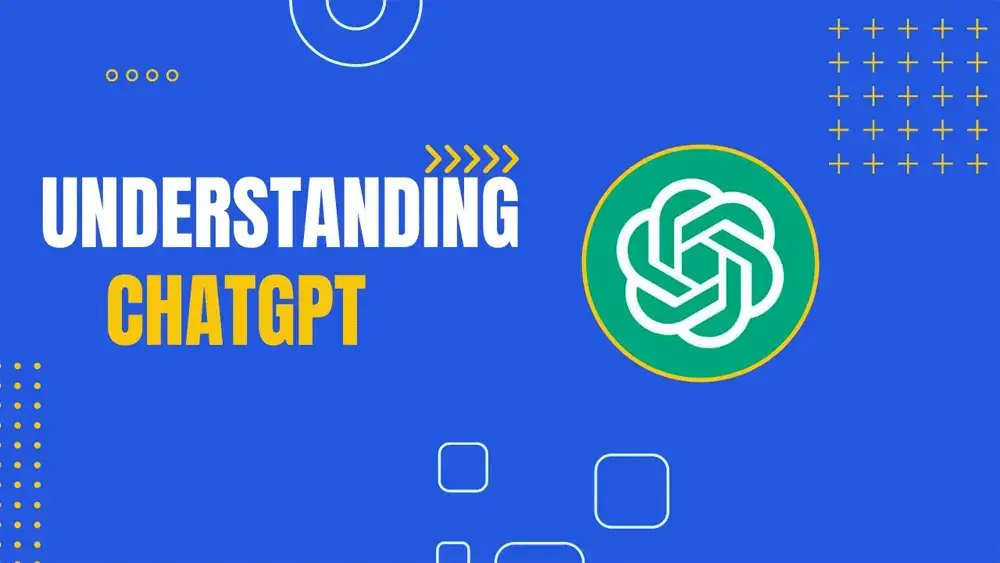
Understanding ChatGPT
Before diving into the practical applications of ChatGPT, let’s explore its inner workings, evolution, and ethical considerations.
How Does ChatGPT Work?
ChatGPT works by analyzing large datasets of text and learning patterns, structures, and context. When given a prompt, it generates a response based on its vast knowledge and understanding of language. This ability allows it to create coherent, contextually relevant content that closely resembles human-generated text.
The Evolution of ChatGPT (GPT-1 to GPT-4)
The ChatGPT technology has evolved significantly since its inception. Starting with GPT-1, each iteration has improved in terms of language understanding, context awareness, and overall performance. The current version, GPT-4, is the most advanced and capable of generating high-quality text that meets the needs of marketers and businesses.
Limitations and Ethical Considerations
While ChatGPT is an impressive tool, it is essential to be aware of its limitations and ethical concerns. The AI-generated content may sometimes be inaccurate or biased, and there might be concerns regarding plagiarism and data privacy. As a responsible marketer, you should use ChatGPT judiciously and ensure ethical practices are followed.
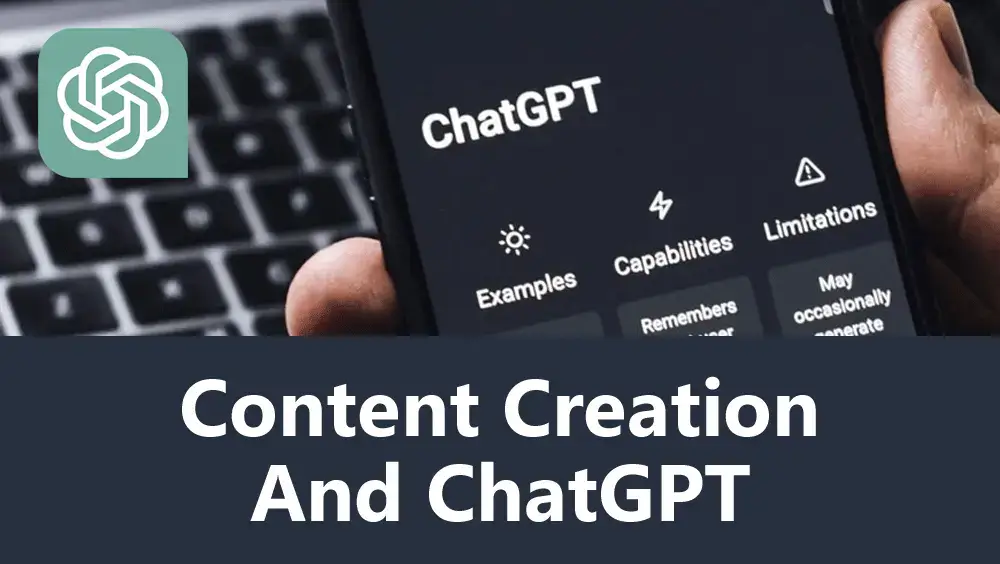
Content Creation and ChatGPT
One of the most significant advantages of ChatGPT is its ability to create various types of content. Let’s explore how you can leverage it for your marketing needs.
Blog Posts and Articles
ChatGPT can be used to generate ideas, outlines, and even complete blog posts or articles. For example, a small business owner who sells eco-friendly products could use ChatGPT to create engaging and informative content about sustainable living. By incorporating long-tail keywords like “AI-driven content creation strategies” and “ChatGPT marketing guide for beginners,” the blog posts can rank higher in search results and attract more readers.
Social Media Content
Creating captivating social media content is essential for any marketing strategy. ChatGPT can help generate content ideas, captions, and even entire posts for various platforms like Facebook, Twitter, and Instagram. For instance, a local restaurant could use ChatGPT to come up with creative captions for their daily specials, incorporating keywords like “Leveraging ChatGPT for customer engagement” to increase visibility.
Email Marketing Campaigns
Crafting personalized and engaging email campaigns can be time-consuming. ChatGPT simplifies this process by generating subject lines, email body text, and call-to-actions tailored to your target audience. For example, an online clothing store could use ChatGPT to create targeted email campaigns for different customer segments, incorporating keywords like “Harnessing ChatGPT for advertising success” to optimize open rates and conversions.
Case Studies: Successful Content Strategies with ChatGPT
Many businesses have already experienced the benefits of integrating ChatGPT into their content creation processes. For instance, a marketing agency used ChatGPT to generate blog content for a client in the fitness industry, leading to a significant increase in organic traffic and user engagement. By utilizing keywords such as “ChatGPT and personalized marketing campaigns,” they were able to rank higher in search results and drive more traffic to their client’s website.
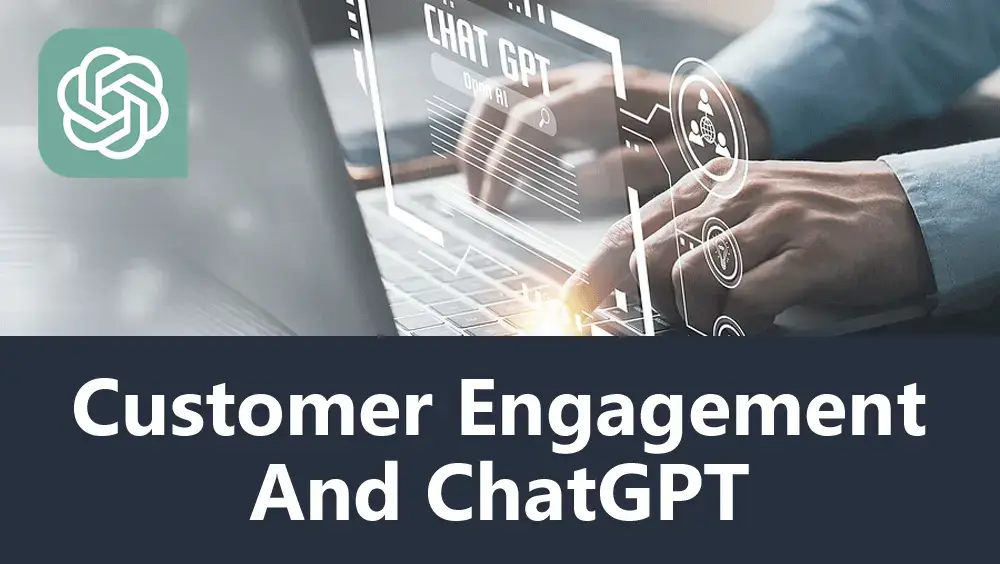
Customer Engagement and ChatGPT
Improving customer engagement is critical for any business, and ChatGPT offers several ways to achieve this goal.
AI-Driven Customer Support
Customer support is a crucial aspect of any marketing strategy. ChatGPT can be utilized to create AI-powered chatbots that provide instant, personalized responses to customer inquiries. This not only improves the customer experience but also saves time and resources for your support team.
Personalized Marketing Campaigns
Personalization is key to successful marketing campaigns, and ChatGPT can help you achieve this by generating tailored content based on customer preferences and behavior. For example, an online bookstore could use ChatGPT to create personalized book recommendations for each customer, increasing the likelihood of a purchase.
Social Listening and Sentiment Analysis
ChatGPT can also be employed for social listening and sentiment analysis. By analyzing online conversations and feedback, it can help you understand your audience’s opinions, preferences, and pain points, enabling you to create targeted marketing campaigns that resonate with your customers.
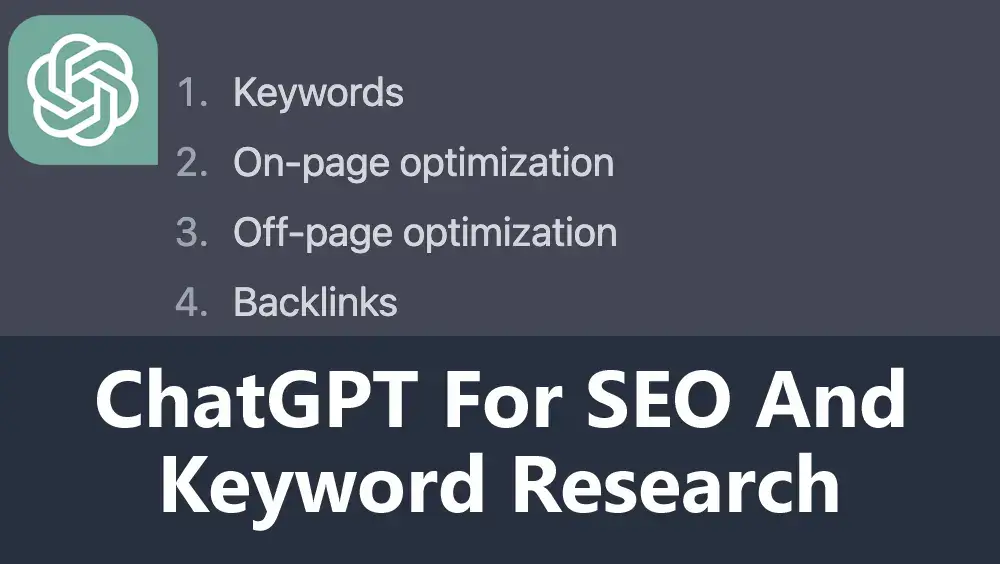
ChatGPT for SEO and Keyword Research
Optimizing your content for search engines is crucial to drive organic traffic to your website. ChatGPT can play a significant role in this process.
Identifying High-Traffic Keywords
ChatGPT can help you identify high-traffic, low-competition keywords to incorporate into your content. By targeting such keywords, you can improve your chances of ranking higher in search results and attract more visitors to your website.
Optimizing Content for Search Engines
ChatGPT-generated content can be optimized for search engines by including relevant keywords and phrases, such as “Effective SEO tactics with ChatGPT.” This ensures that your content aligns with the search intent of users and ranks higher in search results.
Tracking SEO Performance
By analyzing your website’s performance data, ChatGPT can help you identify opportunities for improvement and suggest strategies to enhance your SEO efforts.
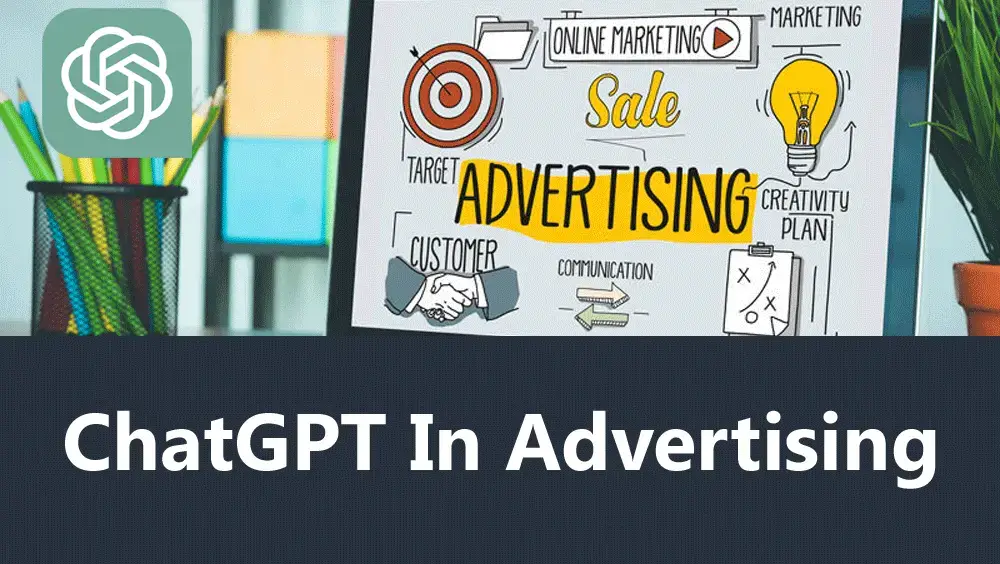
ChatGPT in Advertising
In addition to content creation and SEO, ChatGPT can also be utilized in advertising campaigns.
Ad Copy Creation
ChatGPT can generate compelling ad copy that captures your audience’s attention and drives conversions. By incorporating keywords such as “Integrating ChatGPT in your marketing stack,” you can improve the visibility of your ads and increase click-through rates.
A/B Testing Ad Variations
To optimize your advertising campaigns, it’s essential to test different ad variations. ChatGPT can create multiple ad copies with different headlines, calls to action, and messaging, allowing you to perform A/B tests and identify the most effective version.
Improving Ad Targeting and Retargeting
ChatGPT can analyze your audience data and help you create targeted ad campaigns that cater to specific customer segments. This enables you to deliver relevant ads to the right audience, increasing the chances of conversions.
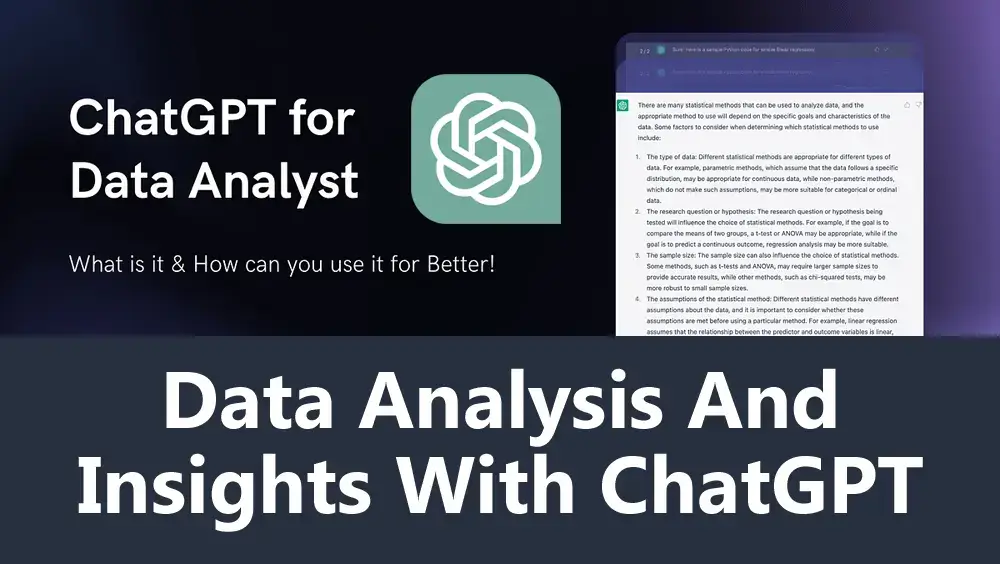
Data Analysis and Insights with ChatGPT
ChatGPT’s capabilities extend beyond content creation and advertising. It can also provide valuable insights from your marketing data.
Interpreting Marketing Data
ChatGPT can process and interpret large volumes of marketing data, helping you identify trends, patterns, and areas of improvement. This information can be used to make informed decisions and optimize your marketing strategy.
Identifying Trends and Patterns
By analyzing your marketing data, ChatGPT can identify emerging trends and patterns that can be used to drive your marketing efforts. For instance, it might detect a growing interest in a particular product or service, allowing you to capitalize on this demand and create targeted campaigns.
Generating Actionable Insights
ChatGPT can transform raw marketing data into actionable insights, enabling you to make data-driven decisions that drive growth and success. For example, by examining your website’s traffic data, ChatGPT might suggest creating content around specific topics or keywords to attract more visitors.
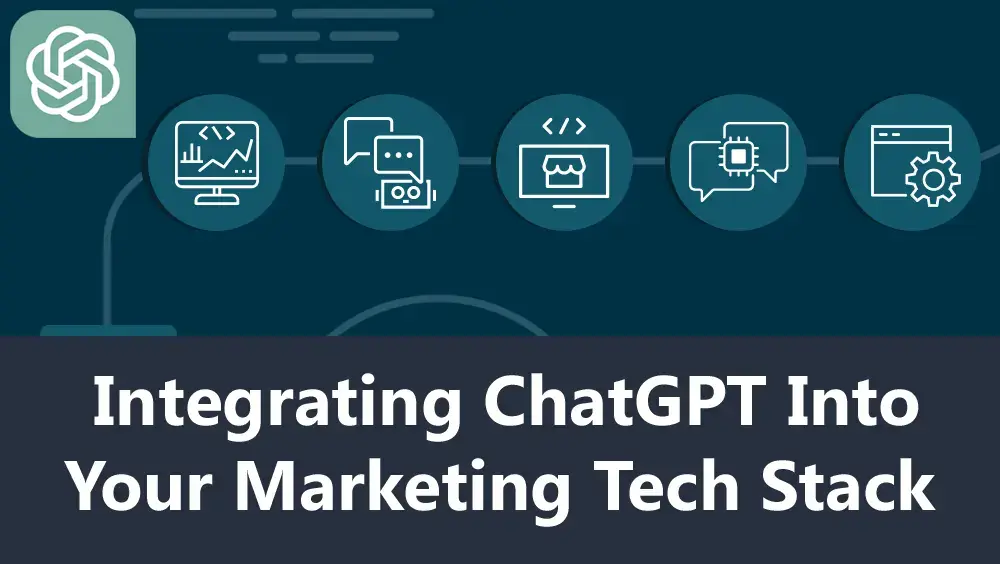
Integrating ChatGPT into Your Marketing Tech Stack
To fully leverage the capabilities of ChatGPT, it’s essential to integrate it into your existing marketing technology stack.
ChatGPT APIs and Third-Party Integrations
OpenAI provides APIs that allow you to integrate ChatGPT with various tools and platforms. By connecting ChatGPT with your existing marketing software, you can streamline your workflows and improve efficiency.
Migrating Existing Processes to ChatGPT
When incorporating ChatGPT into your marketing tech stack, it’s crucial to identify which processes can be automated or enhanced using ChatGPT. This might involve replacing manual content creation with AI-generated content or improving customer support with AI-driven chatbots.
Ensuring Data Privacy and Compliance
As with any technology, it’s essential to ensure that your use of ChatGPT complies with data privacy regulations and industry best practices. This might involve implementing strict access controls and data storage policies or conducting regular audits to ensure compliance.
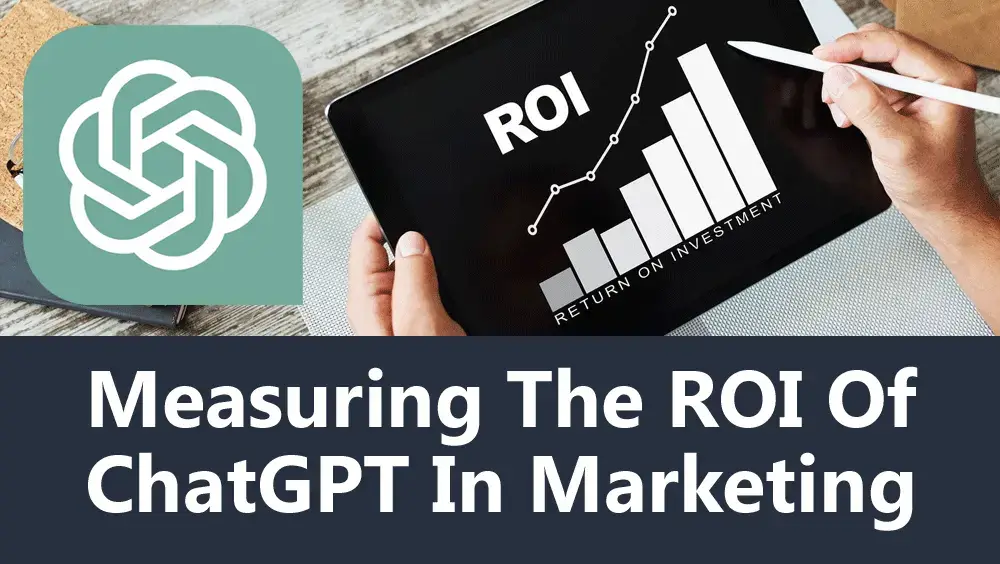
Measuring the ROI of ChatGPT in Marketing
To justify the investment in ChatGPT, it’s crucial to measure the return on investment (ROI) and evaluate its success.
Key Performance Indicators (KPIs)
Identify relevant KPIs, such as website traffic, conversion rates, and customer engagement, to measure the impact of ChatGPT on your marketing efforts. Monitoring these metrics will help you determine the effectiveness of your ChatGPT-powered campaigns and make necessary adjustments.
Quantifying Cost Savings
Using ChatGPT can lead to significant cost savings by automating time-consuming tasks and reducing the need for manual labor. Calculate these savings to better understand the ROI of your ChatGPT investment.
Evaluating Success: Case Studies
Learn from the success stories of businesses that have effectively used ChatGPT in their marketing strategies. Analyzing their results and experiences can provide valuable insights into the potential benefits and best practices of using ChatGPT.
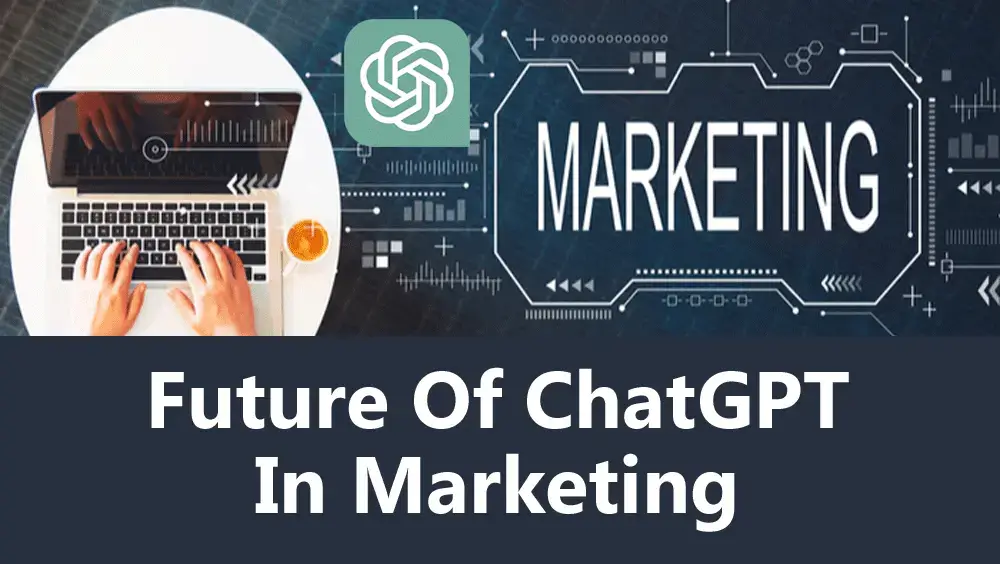
Future of ChatGPT in Marketing
As technology continues to evolve, it’s essential to stay ahead of the curve and prepare your business for the future.
Technological Advancements and Their Implications
With the ongoing development of AI technology, ChatGPT is expected to become even more powerful and capable. Stay informed about the latest advancements to ensure your marketing strategy remains competitive and relevant.
The Role of Marketers in an AI-Driven World
While AI tools like ChatGPT can automate many tasks, the role of human marketers remains crucial. As a marketer, it’s essential to focus on strategic decision-making, creativity, and relationship-building, skills that AI cannot replicate.
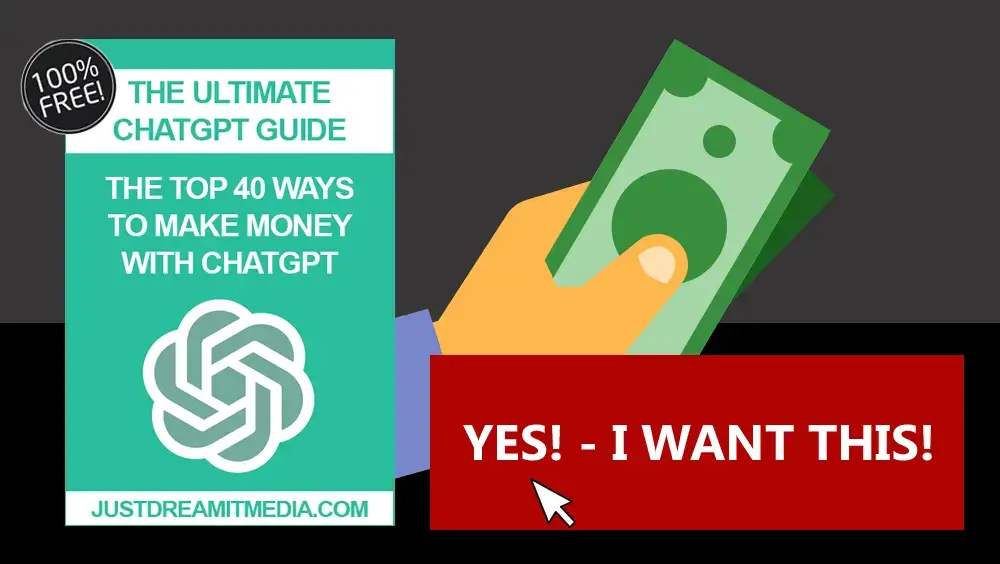
Preparing Your Business for the Future
Adopting AI-driven tools like ChatGPT is an essential step in preparing your business for the future. By embracing these technologies and adapting your marketing strategies accordingly, you can ensure the continued success and growth of your business.
Leveraging ChatGPT in your marketing strategy can provide numerous benefits, including improved content creation, customer engagement, SEO optimization, and advertising effectiveness. This comprehensive guide has covered various aspects of ChatGPT, from understanding its inner workings and capabilities to integrating it into your marketing tech stack and measuring its ROI.
By incorporating ChatGPT into your marketing efforts, you can stay ahead of the curve and capitalize on the power of AI-driven technologies. As a beginner, it’s essential to stay informed about the latest advancements and best practices, ensuring that your marketing strategies remain competitive, relevant, and future-proof.
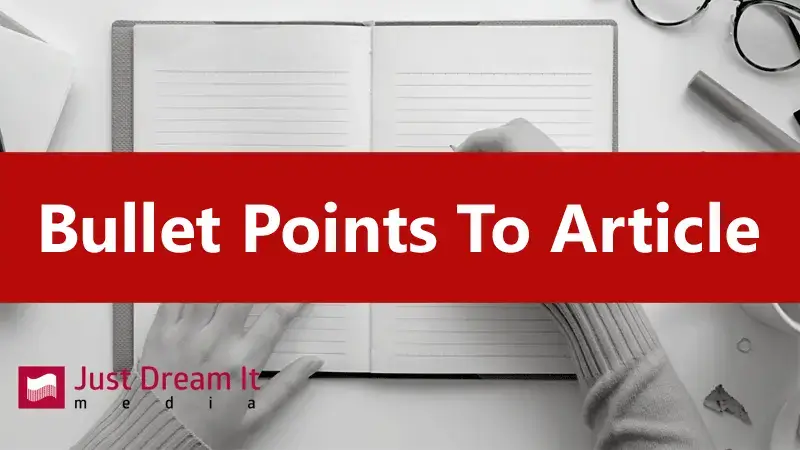
As a beginner looking to leverage ChatGPT for your marketing strategy, it’s essential to understand the various aspects of this powerful AI tool.
This article covered the following main points:
1. Introduction to ChatGPT: We provided an overview of the AI-driven language model, explaining its benefits and how it can improve your marketing efforts.
2. Understanding ChatGPT: We delved into the workings of ChatGPT, its evolution, limitations, and ethical considerations.
3. Content Creation and ChatGPT: We discussed how ChatGPT can be used for creating different types of content, including blog posts, social media updates, and email marketing campaigns.
4. Customer Engagement and ChatGPT: We explored how ChatGPT can improve customer engagement through AI-driven customer support, personalized marketing campaigns, and social listening and sentiment analysis.
5. ChatGPT for SEO and Keyword Research: We explained how ChatGPT can help optimize your content for search engines by identifying high-traffic keywords and generating SEO-friendly content.
6. ChatGPT in Advertising: We examined how ChatGPT can be employed in advertising campaigns, from ad copy creation to A/B testing ad variations and improving ad targeting and retargeting.
7. Data Analysis and Insights with ChatGPT: We highlighted how ChatGPT can provide valuable insights from your marketing data, interpreting trends and patterns and generating actionable insights.
8. Integrating ChatGPT into Your Marketing Tech Stack: We discussed the importance of integrating ChatGPT into your existing marketing technology stack, covering APIs, third-party integrations, and ensuring data privacy and compliance.
9. Measuring the ROI of ChatGPT in Marketing: We explained how to measure the return on investment of ChatGPT by identifying key performance indicators, quantifying cost savings, and evaluating success through case studies.
10. Future of ChatGPT in Marketing: We looked at the potential future developments of ChatGPT, its implications for marketers, and how to prepare your business for an AI-driven future.
By understanding these key points, you’ll be well-equipped to make the most of ChatGPT in your marketing strategy, enabling you to create engaging content, improve customer engagement, and optimize your SEO and advertising efforts.

To implement an effective action plan based on the article “ChatGPT for Beginners: Boost Your Marketing Strategy,” follow these steps:
1. Familiarize yourself with ChatGPT: Research and gain a solid understanding of ChatGPT’s capabilities, limitations, and ethical considerations.
2. Determine your marketing needs: Assess your current marketing strategy and identify areas where ChatGPT can provide the most value, such as content creation, customer engagement, SEO, advertising, or data analysis.
3. Integrate ChatGPT into your marketing tech stack: Sign up for an API key from OpenAI and connect ChatGPT with your existing marketing tools and platforms. Ensure data privacy and compliance when integrating ChatGPT into your marketing processes.
4. Experiment with content creation: Start using ChatGPT to generate different types of content, including blog posts, social media updates, and email marketing campaigns. Monitor the performance and quality of the AI-generated content, making necessary adjustments to align with your brand voice and message.
5. Improve customer engagement: Implement ChatGPT-powered solutions such as AI-driven customer support, personalized marketing campaigns, and social listening and sentiment analysis to enhance customer engagement.
6. Optimize SEO and keyword research: Leverage ChatGPT to identify high-traffic, low-competition keywords and create SEO-friendly content that ranks higher in search results.
7. Enhance advertising efforts: Utilize ChatGPT for ad copy creation, A/B testing ad variations, and improving ad targeting and retargeting to boost the effectiveness of your advertising campaigns.
8. Analyze marketing data and insights: Use ChatGPT to process and interpret marketing data, identifying trends, patterns, and opportunities for improvement in your marketing strategy.
9. Measure ChatGPT’s ROI: Track key performance indicators, quantify cost savings, and evaluate success through case studies to measure the return on investment of ChatGPT in your marketing efforts.
10. Stay informed about future developments: Keep up-to-date with the latest advancements in AI technology and be prepared to adapt your marketing strategies to stay competitive and relevant in an AI-driven world.
By following this action plan, you can effectively integrate ChatGPT into your marketing strategy, leading to improved content creation, customer engagement, and overall marketing success.

As a beginner exploring the possibilities of ChatGPT in your marketing strategy, you may have some questions about its implementation and effectiveness.
Here are 10 frequently asked questions and their answers:
1. What is ChatGPT, and how can it help my marketing efforts?
Answer: ChatGPT is an advanced AI-driven language model developed by OpenAI. It can help your marketing efforts by automating content creation, improving customer engagement, optimizing SEO, enhancing advertising campaigns, and providing valuable data insights.
2. Is ChatGPT suitable for small businesses and startups?
Answer: Yes, ChatGPT can be highly beneficial for small businesses and startups, as it helps create engaging content and optimize marketing efforts without spending significant resources on manual tasks.
3. How can I ensure that my ChatGPT-generated content is accurate and reliable?
Answer: To ensure accuracy, relevance, and quality, it’s essential to review and edit the generated content, fact-check the information, and make any necessary adjustments to align the content with your brand’s voice and message.
4. Are there any alternatives to ChatGPT?
Answer: There are several alternative AI-driven content generation tools available, such as Copy.ai, Jasper, and Writesonic. However, ChatGPT, developed by OpenAI, is considered one of the most advanced and capable language models in the market.
5. Can ChatGPT replace human marketers?
Answer: While ChatGPT can automate many tasks, the role of human marketers remains essential. AI tools like ChatGPT can complement and enhance human efforts, allowing marketers to focus on strategy, creativity, and relationship-building.
6. How do I start using ChatGPT for my marketing needs?
Answer: To begin using ChatGPT, sign up for an API key from OpenAI and integrate it with your existing marketing tools and platforms. Start by experimenting with content creation, customer engagement, and SEO optimization, and gradually explore more advanced applications, such as advertising and data analysis.
7. What are the limitations and ethical considerations of using ChatGPT?
Answer: ChatGPT has limitations, such as generating incorrect or nonsensical information and potentially reinforcing biases. Ethical considerations involve responsible use, ensuring content accuracy, and adhering to data privacy regulations and industry best practices.
8. How can I measure the ROI of ChatGPT in my marketing efforts?
Answer: Measure the ROI of ChatGPT by identifying key performance indicators, quantifying cost savings, and evaluating success through case studies. Monitoring these metrics will help you determine the effectiveness of your ChatGPT-powered campaigns and make necessary adjustments.
9. Can ChatGPT help with SEO and keyword research?
Answer: Yes, ChatGPT can help optimize your content for search engines by identifying high-traffic keywords and generating SEO-friendly content that ranks higher in search results.
10. What are the future prospects of ChatGPT in marketing?
Answer: As AI technology continues to evolve, ChatGPT is expected to become even more powerful and capable. Staying informed about the latest advancements ensures your marketing strategy remains competitive and relevant in an AI-driven world.
Conclusion
In conclusion, ChatGPT offers incredible potential for businesses looking to enhance their marketing strategies. By leveraging this powerful AI-driven language model, you can automate content creation, improve customer engagement, optimize SEO, and strengthen your advertising efforts. This comprehensive guide for beginners has provided insights into the various aspects of ChatGPT, from understanding its workings and capabilities to its integration into your marketing tech stack and measuring ROI.
Now is the time to take action and harness the power of ChatGPT to boost your marketing strategy. Begin by familiarizing yourself with the tool, identifying your marketing needs, and integrating ChatGPT into your existing processes. Experiment with its applications, measure its effectiveness, and stay informed about future developments to ensure your marketing efforts remain competitive in an AI-driven world.
By embracing ChatGPT and adapting your marketing strategies accordingly, you can drive growth and success for your business in the rapidly evolving digital landscape. Don’t miss out on the opportunity to stay ahead of the curve and capitalize on the advantages of AI-driven marketing technologies.

